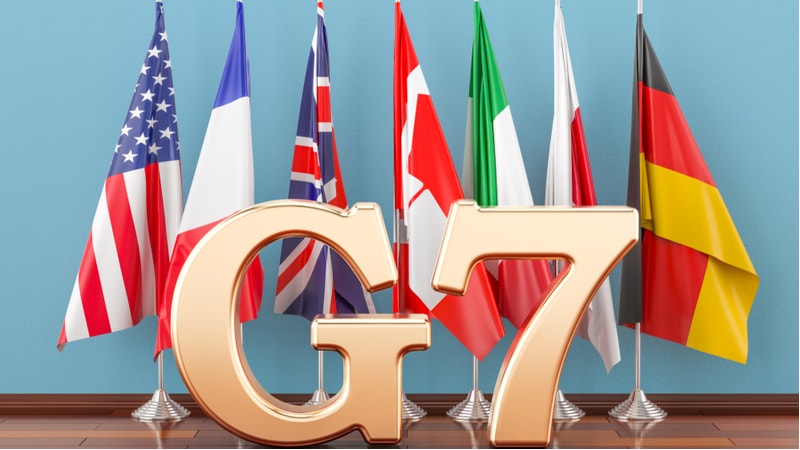
Ahead of the G7 Summit in France set for Aug. 24-26, a collection of tech-sector trade groups penned a letter urging G7 leaders to consider a range of recommendations on global technology issues including digital trade, cross-border data flows, tax policy, data privacy, cybersecurity, encryption, and artificial intelligence (AI) technologies.
The letter, which was released Aug. 22, urges G7 countries to “work together to enable digital technologies that power growth, development, entrepreneurship, job creation, and innovation around the world.”
“The way companies do business around the world has changed dramatically over the last decade,” said the trade groups, which represent the largest tech companies in the United States, Europe, and the Asia-Pacific.
“Businesses across all sectors now rely on digital technologies to produce, move, market, and sell products and services … This Summit is an opportunity to capitalize on this moment by reducing discriminatory and other problematic regulatory measures and by crafting high-standard trade rules that promote inclusive innovation, growth, and development,” the groups said.
The trade groups offered up 12 recommendations they want G7 leaders to work on:
- “Reach early agreement on the WTO [World Trade Organization] Joint Statement Initiative on E-Commerce through promoting ambitious and inclusive international digital trade rules;
- Make permanent the WTO Moratorium on customs duties on electronic transmissions;
- Facilitate the free flow of data across borders and refrain from imposing measures requiring the local storage or processing of data or the use of local computer facilities;
- Commit to achieving a multilateral approach to tax policy issues arising from digitalization and refrain from pursuing unilateral digital tax measures;
- Extend high levels of privacy protection that ensure international interoperability and conform with OECD [Organisation for Economic Co-operation and Development] Guidelines on the Protection of Privacy and Transborder Flows of Personal Data;
- Enhance cybersecurity by using risk-based approaches grounded in global, consensus-based, industry-led standards and best practices;
- Protect consumers from fraudulent or deceptive commercial activities on the internet through cooperation among national consumer protection bodies;
- Continue to expand participation in WTO agreements, such as the Government Procurement Agreement (GPA) and Information Technology Agreement (ITA);
- Oppose measures that force disclosure of source code, algorithms, encryption keys, or other sensitive information as a condition of doing business;
- Encourage the responsible and ethical design and deployment of AI systems, including addressing safety mechanisms, using robust and representative data, promoting transparency, and enabling greater interoperability;
- Support the development of AI standards through global, consensus-based, industry-led processes to enable technical interoperability, non-discriminatory market access, and innovation; and
- Facilitate open format and machine-readable data sets to foster innovation and competitiveness in AI technologies and enhance and generate business opportunities for small and medium-sized enterprises.”
The letter was signed by Information Technology Industry Council (ITI), ACT | The App Association, BSA | The Software Alliance, Computer & Communications Industry Association, Communications and Information Network Association of Japan, Coalition of Services Industries, Internet Association, Japan Business Council in Europe, Japan Electronics and Information Technology Industries Association, Japan Information Technology Services Industry Association, Japan Machinery Center, Japan Services Network, National Foreign Trade Council, Software and Information Industry Association, and techUK.
